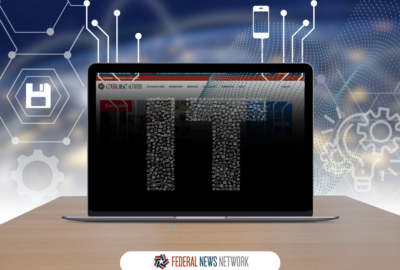The Justice Department’s Executive Office for Immigration Review has been slowly moving into the digital age over the last several years. But as they enter the fourth phase of their E-World Initiative, the agency is about to embark on a key piece of the effort.
Richard Chandler, the chief information officer of EOIR, said one of his biggest priorities is the iterative roll out of capabilities for private bar attorneys to register and file documents and forms electronically through the court system.
“There’s process issues associated with us trying to figure out how to move our paper-based processes into the digital world. There have been budget issues over the last decade, and also the interaction with our customers. There are a lot of reasons. We have to make sure we do it right.”
Chandler said about 50,000 private attorneys interact on 250,000 immigration related cases a year.
He said the goal is to use an agile approach for E-World and deliver capabilities every 3-to-6 months.
EOIR will finish implementing phase 3, which is e-transcription, this summer of E- World.
“We record all of our hearings in our immigration courts. We don’t have stenographers or transcribers in the court rooms during a hearing. We record them digitally and in the past, we’d sent out the CDs with recordings to a transcription company and get those back in paper file,” he said. “Now we are working with our vendors to digitally send the file to the vendor and receive electronic copies of the transcripts back. We are finding that is a real way to improve our business processes, both in quality assurance in reviewing our transcribed files when they come back as well as automating our invoicing processing for that work.”
The first phases of E-World was to build an online case management system and implement digital recordings across all 330 courtrooms nationwide.
Chandler said he’s also focusing on improving the agency’s infrastructure, including upgrades to mail servers, database servers and even office software.
“We are getting to roll out Windows 7 later this year,” he said. “We know that somewhere down the road we need to be going to a departmentwide commodity system for email. But we know we can’t stop what we are doing now. What we are doing now must be inline with the path we think we are going to go with the DoJ.”
EOIR is taking a long look at shared services for commodity IT. Chandler said DoJ is holding PortfolioStat sessions and will figure out a path forward to consolidate redundant investments in July.
Last year, he said all the courtrooms received voice-over-IP (VOIP), and now they are implementing video-over-IP.
RELATED STORIES:
OMB launches PortfolioStat to reduce commodity IT spending
How to fix ‘massive crisis’ in immigration courts
Copyright
© 2024 Federal News Network. All rights reserved. This website is not intended for users located within the European Economic Area.






